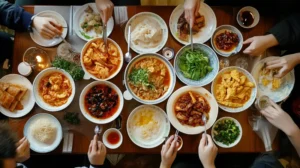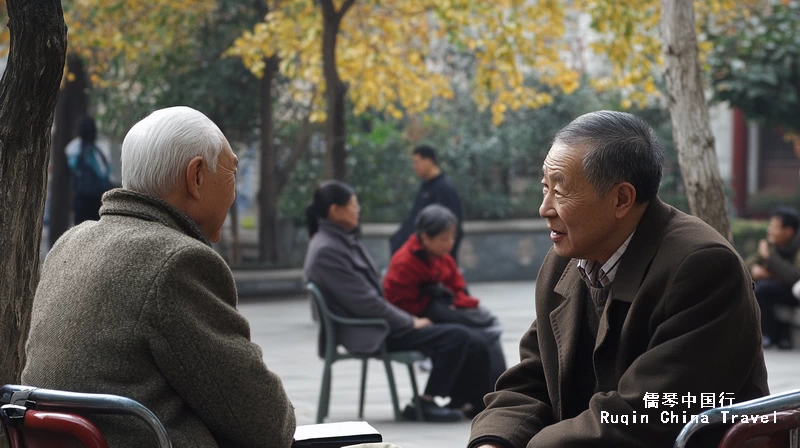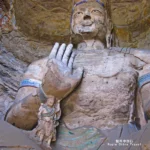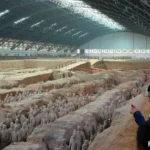Plan your Beijing tour? Beijing is a city steeped in thousands of years of history. It is not only the political and cultural heart of China but also a destination where ancient customs meet modern life. When visiting Beijing, it’s important to be aware of local cultural norms to ensure that you show respect to the people and their traditions.
In this guide, we will cover essential tips on cultural etiquette in Beijing so you can navigate the city respectfully and confidently. Understanding how to behave in various situations will enhance your experience and ensure you leave a positive impression on the locals.
1. Greeting Etiquette in Beijing

How to greet people in Beijing is the basic cultural etiquette in Beijing. When meeting people in Beijing, greetings are usually formal and polite. While handshakes have become common in professional settings, they are generally softer than Western-style handshakes. You might also notice that some people bow slightly as a sign of respect, especially if they are older.
Additionally, when greeting someone, it is polite to say “Ni hao” (你好), which means “hello.” If you’re unsure how to greet someone, a simple smile and nod can go a long way. Beijing greetings and manners are straightforward, but showing politeness through these small gestures is essential.
2. Addressing People in Beijing
In China, it’s important to address people with the appropriate titles to show respect. In formal settings, use the person’s last name followed by their title. For example, if someone’s last name is Wang and they are a manager, you can say “Wang Jingli” (王经理), meaning “Manager Wang.” This formality is crucial in business and professional environments.
When addressing strangers or people in social settings, addressing them with “Mister” (先生 xiānsheng), “Miss” (小姐 xiǎojiě), or “Madam” (女士 nǚshì) is considered respectful. Understanding Chinese etiquette in Beijing means recognizing the value placed on respect and formality in communication.
3. Gift-Giving Etiquette
Gift-giving is an important part of cultural etiquette in Beijing, especially during special occasions or as a gesture of gratitude. When offering a gift, it’s customary to present it with both hands, as this shows respect. Similarly, if you receive a gift, accept it with both hands.
However, avoid giving certain gifts that are considered unlucky in Chinese culture. For instance, clocks are associated with death, and giving a clock as a gift can be seen as bad luck. Sharp objects like knives or scissors can symbolize the severing of a relationship, so they are also best avoided. Additionally, it’s polite to refuse a gift once or twice before accepting it, as this is seen as a humble gesture.
4. Dining Etiquette in Beijing

Chinese dining customs are unique, and knowing how to behave during meals is a key part of cultural etiquette in Beijing. When eating out, whether at a friend’s home or in a restaurant, you may notice that meals are often served family-style. Dishes are placed in the center of the table, and everyone shares the food.
It is polite to let older people or guests of honor serve themselves first. If you are serving food to others, use the serving utensils provided rather than your chopsticks. Speaking of chopsticks, be mindful of how you handle them. Avoid sticking your chopsticks upright in a bowl of rice, as this resembles incense used in funerals, which is considered bad luck. Additionally, tapping your chopsticks on the table or playing with them is seen as disrespectful.
When the meal is over, offering to pay for the bill is a gesture of goodwill, though it is common for hosts to insist on paying. Social etiquette in Beijing encourages these types of polite exchanges.
5. Behavior in Public Spaces
When navigating public spaces in Beijing, it’s important to be mindful of Chinese social norms for tourists. In general, maintaining a calm and respectful demeanor in public is expected. Speaking in a low voice, especially in crowded places like public transport or restaurants, is considered polite.
Beijing locals tend to avoid public displays of affection, so it’s best to refrain from overly affectionate behavior in public areas. Additionally, when using public transportation, be aware that personal space is often limited, particularly during peak hours. Despite the close quarters, patience and politeness are appreciated.
6. Respect for Elders
In Beijing, and in China as a whole, elders are highly respected. This respect is shown through small gestures, such as offering them a seat, helping them carry heavy items, or allowing them to go first in line. When engaging with older individuals, address them politely and show deference.
When sharing a meal or attending an event, it’s customary to ensure elders are served first or given the best seat. Showing respect to elders is a deeply ingrained part of Chinese cultural customs in Beijing, and it will be appreciated by the local community.
7. Visiting Temples and Religious Sites
Beijing is home to many beautiful temples, such as the Lama Temple and the Temple of Heaven, which are both spiritual and cultural landmarks. When visiting religious sites, it’s important to show respect for local customs and beliefs. Dressing modestly is essential when entering temples, and it’s generally expected that visitors cover their shoulders and knees.
Additionally, always seek permission before taking photographs inside temples, as some areas may have restrictions. If you see locals praying or participating in rituals, observe respectfully without interrupting. When navigating Beijing local customs at religious sites, showing reverence for sacred spaces is key to a respectful visit.
8. Politeness in Conversation
When conversing with locals, it’s important to remain respectful and avoid sensitive topics. Discussions about politics, particularly regarding topics such as Taiwan, Tibet, or human rights, are best avoided, as these can be sensitive issues in China. Instead, focus on neutral topics like food, travel, or culture.
Maintaining a calm and patient tone in conversation is valued, and interrupting others is considered rude. Additionally, pointing with your finger or raising your voice in frustration are seen as impolite behaviors. How to show respect in Beijing often boils down to how you handle yourself in social interactions, and kindness and patience will go a long way.
9. Public Manners and Lines
In Beijing, lining up for services or when waiting in crowded places is common, but there can be some jostling, especially in busy areas like train stations or tourist sites. It’s important to stay patient, as pushing ahead or cutting in line is frowned upon. When in doubt, follow the local cues and remain calm, even if the situation feels a bit chaotic.
Additionally, spitting in public, though less common in recent years, is still occasionally seen in Beijing. While this may be surprising to foreign visitors, it is part of the local culture. If you’re uncomfortable, you can always step aside politely.
10. Respect for Beijing’s History and Monuments
As a city filled with cultural and historical landmarks, Beijing is proud of its rich history. When visiting famous sites like the Forbidden City, the Great Wall, or Tiananmen Square, showing respect for these places is essential. Avoid touching artifacts, climbing on restricted areas, or being overly loud in historical locations.
When taking photos, be mindful of others around you and follow any posted guidelines. By respecting Beijing’s historical sites, you’ll demonstrate your appreciation for the city’s past while also being a considerate traveler.
Traveling to Beijing offers an incredible opportunity to explore a city rich in history, culture, and tradition. By understanding cultural etiquette in Beijing, you’ll ensure that your interactions with locals are respectful and positive. From greeting people properly to observing public manners, being aware of Beijing’s social norms will make your trip more enjoyable and show the local community that you value their culture.
Remember to practice polite behavior in public spaces, show respect to elders, and follow the customs when visiting temples and historical sites. With these Beijing travel etiquette tips, you’ll be well-prepared to experience the city with respect and confidence, leaving a lasting positive impression during your stay.
More Beijing Travel Guides
Planning your Beijing tour? Our “Beijing Travel Guide“ section offers essential advice to help you navigate the city like a pro. From transportation tips and local customs to insider recommendations for hidden gems, these travel tips will ensure you have a smooth, enjoyable, and unforgettable experience in China’s vibrant capital. Let us guide you through the best practices for exploring Beijing with confidence!



